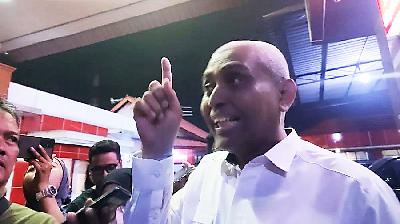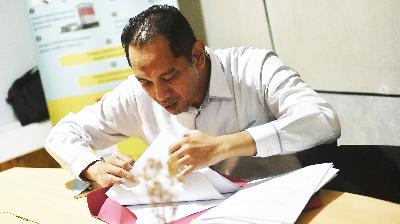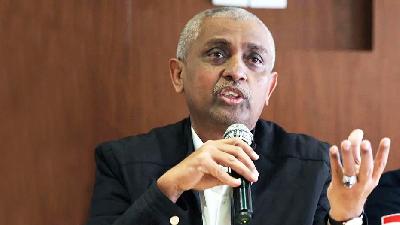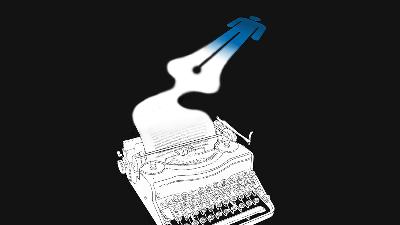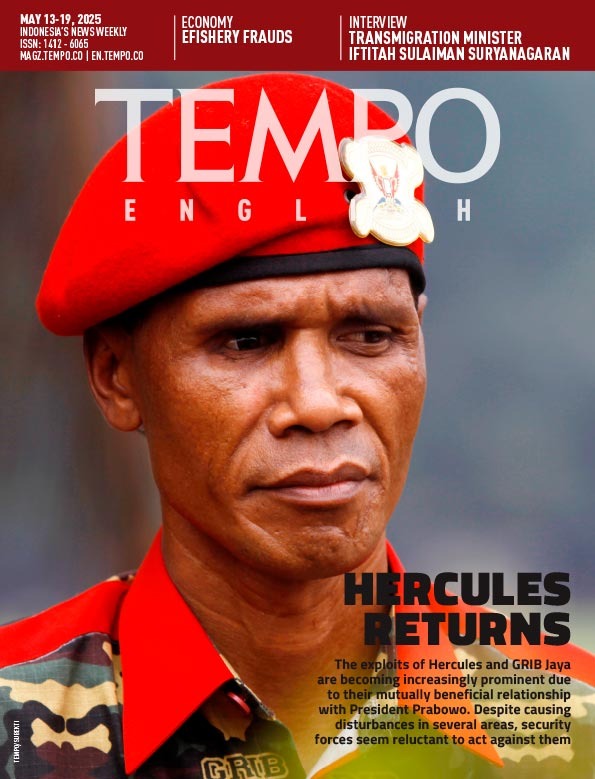Jokowi’s Favorites for Regional Heads
Monday, May 13, 2024
President Jokowi mobilizes his family and people close to him in the elections for regional heads. For the continuation of his political dynasty.
arsip tempo : 174728112842.

AT the end of his administration, President Joko Widodo is still trying to ensure the continuation of his influence in government after he steps down.
After the brazen endeavor to bring about the victory of his son in the 2024 presidential election, he is now preparing to intervene in the regional head elections taking place later this year. Jokowi has put forward his sons-in-law, aides, assistants and even his wife’s adjutant to run in elections for governors, regents and mayors.
In order to extend his term of office, Jokowi tried to delay the presidential election—but in the end, this failed. In the coming election for regional heads, he tried to bring forward the elections to September, two months before the original schedule. In September, he will still have influence as president.
He implemented this plan by submitting the Presidential Regulation in lieu of the Regional Head Election Law to the House of Representatives (DPR) at the end of last year. Fortunately, the DPR rejected the law and the Constitutional Court backed this by declaring that the regional elections would take place on November 27, 2024.
If the elections had been brought forward, Jokowi would have been free to deploy the resources of the state to ensure the victory of those he supported—as he did in the presidential election. In the recent presidential election, he mobilized social assistance funds, deployed government officials, and campaigned in the guise of official visits.
In November’s regional elections, he will have less opportunity to intervene, although it will not disappear entirely. According to General Election Commission Regulation No. 2/2024, the registration of candidates for regional heads begins at the end of August, and the campaign period runs from September 25 to November 23. Given the experience of the presidential election, it is not impossible that Jokowi will use this opportunity to once again influence the people in their choice of vote.
After all, Jokowi has obtained immunity from accusations of abuse of power from the Constitutional Court. Constitutional Court Rulings No. 1/2004 and No. 2/2004 that rejected the legal challenge over alleged electoral fraud stated that what Jokowi did during the presidential election was not against the law. However, it was plain to see that his partisanship in the election breached many laws—from the neutrality of the president and state officials to the regulations on social assistance.
These legal violations were noted by three constitutional justices in their dissenting opinion. These three judges—Arief Hidayat, Saldi Isra and Enny Nurbaningsih—saw the law not as a dead legal text. They viewed it as a means of upholding justice. For them, what Jokowi did endangered the social capital of the state.
The way that Constitutional Court rulings are passed, using the ratio of justices, means that Jokowi’s actions were ruled legal. Five justices rejected all of the arguments and evidence of electoral fraud put forward by presidential candidates Anies Baswedan and Ganjar Pranowo.
In Jokowi’s eyes, regional heads are important tentacles in supporting his political dynasty. After successfully making Gibran Rakabuming Raka vice president, he is pushing for his son-in-law, Medan Mayor Bobby Nasution, to become governor of North Sumatra. And behind Bobby, there is still Kaesang Pangarep, Jokowi’s youngest son, who failed to take the Indonesian Solidarity Party past the parliamentary electoral threshold. After Kaesang, Jokowi might prepare a political path to power for those close to him, his extended family and even his grandchildren.
The continuation of his dynasty must be supported by small powers in many regions. By taking control of regional heads at the provincial and regency level, Jokowi will remain relevant in the political arena after he is no longer president from October 20.
As a politician who does not have a political party, Jokowi has depended upon his image and gimmicks for public support. Support from volunteer organizations and uneducated voters who really believe disinformation are Jokowi’s means of improving his bargaining position with the parties. This bargaining position is also useful to protect himself from any legal challenges to the lighthouse projects supported by reckless policies during his presidency.




